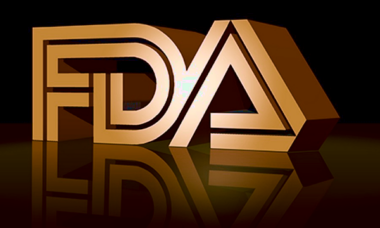 Fears have been raised that new product standards proposed by the US Food and Drug Administration (FDA) to protect consumer health may be costly to implement and overly burdensome for smaller companies.
Fears have been raised that new product standards proposed by the US Food and Drug Administration (FDA) to protect consumer health may be costly to implement and overly burdensome for smaller companies.
The FDA has proposed a series of new requirements for tobacco products that would apply controls to product design and development, establish manufacturing specifications, prevent contamination and prohibit the manufacture or distribution of products that do not meet specifications.
The FDA opened registration yesterday for an upcoming public hearing on the proposals.
Commentators may be able to express concerns at the 12th April hearing, or through lobbying the FDA’s Tobacco Products Scientific Advisory Committee (TPSAC), which will provide input on the proposals on 18th May.
Harm reduction expert Clive Bates has wondered how much more consumer protection needed to be enshrined into regulation. For example, the principle that consumer products should be accurately described is already established in general consumer protection regulation.
He questioned whether consumers were really calling out for standards like these and suggested the FDA ask what consumers are concerned about, in order to design regulations that meet their concerns.
‘Larger players will like it’
“If you ask consumer groups what they want from regulation, I doubt many will say that this is what they have been waiting for,” he said. Instead the move seems “more like another attack on the diversity of the tobacco alternative industry dressed up as consumer protection”.
Bates told TobaccoIntelligence: “What will matter here is how burdensome and intolerant of variation the regime will be. Like so much of what the FDA does, it could easily overwhelm small-to-medium enterprises with excessive demands that make no real difference to consumer protection. Many larger players will like it, but that’s because compliance will be easier for them, and its main effects will fall on their smaller competitors.”
Bryan Haynes and Agustin Rodriguez of the US law firm Troutman Pepper agreed that the proposed standards would entail significant changes for most manufacturers, particularly smaller ones.
“Some elements, such as requirements to address adverse experiences and to ensure that products are not contaminated, are not a surprise. However, the breadth of the proposed rule dwarfs the more modest approaches that the industry had previously proposed. The rule would likely entail substantial new costs for manufacturers, and it is not clear that FDA has adequately considered those costs,” they said.
However, the FDA said the new requirements would help protect public health and ensure products comply with the Federal Food, Drug, and Cosmetic (FD&C) Act.
Tighter control ‘necessary’
“These proposed requirements would help protect public health by, among other things, minimizing or preventing contamination and limiting additional risks by ensuring product consistency,” the FDA stated.
The agency placed particular emphasis on the ability to prevent contaminated or substandard products from entering the market. The proposed rule would establish several identification, tracing and corrective action requirements for contaminated or substandard tobacco products – including those that have already been distributed.
In the event of an issue, manufacturers would be required to take corrective action, including conducting a recall.
Cliff Douglas, director of the University of Michigan Tobacco Research Network, acknowledged that the rules would primarily hit small makers of alternative nicotine products and e-cigarettes, but believes they are necessary.
“Currently the marketplace for those products isn’t well controlled,” he said. “Some manufacturers and sellers are responsible and know what they’re doing, but in some cases products are made with more or less nicotine or other substances and ingredients in them, which may not be accurately represented on the label. The proposed manufacturing standard seeks to standardise the process and ensure quality control. It would make this a more conservative, more tightly controlled marketplace.”
– Antonia di Lorenzo TobaccoIntelligence staff







